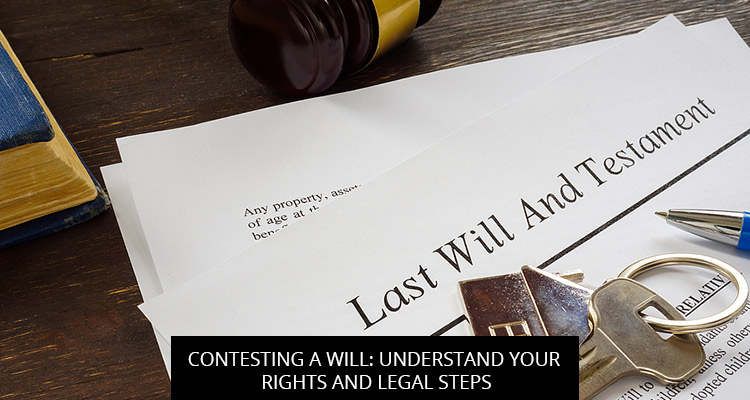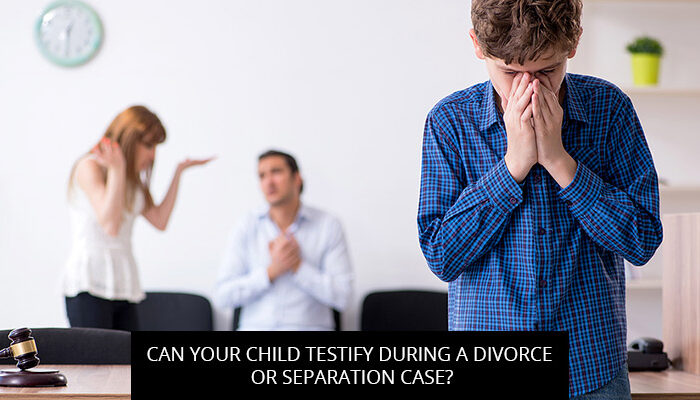
Contesting of wills is commonly seen in probate litigation. Any person whose right is associated with a will and that right is effected is entitled to challenge the will. A spouse, child, dependent, or a family member who has been promised something or has a financial interest in the will can challenge the will. If there appears a situation where you feel like the will is not rightly executed, you have not received the full portion of what you have been entitled to by the testator, or have received no share at all from the will, then do not worry you have a legal right to contest the will in a probate court.
Common Grounds For Challenging A Will
Testamentary Capacity
Making of a will means distribution of your estate which not only requires vigilance but testamentary capacity as well. By testamentary capacity it means that the testator must have the mental capacity to encapsulate the administration of his/her assets in the will. Testator must be able to understand the legal consequences and contents of the will in entirety. Lack of testamentary capacity can be a solid ground to contest a will.
Undue Influence
If it can be proven that the testator was unduly influenced by another person when making the will, the validity of the will may be challenged. Undue influence occurs when someone exerts pressure on the testator that overpowers their free will and causes them to make decisions that they otherwise would not have made.
Fraud Or Forgery
If the objector of the will has evidence that suggests that the will was procured through fraud or forgery, it can be challenged on these grounds. This could involve situations where the testator’s signature was forged, or where the testator was misled or deceived into signing a will by false simulations.
Improper Execution
This is yet another solid ground to challenge the will. A will needs to follow formal requirements in order to be deemed a valid will. A will must be signed and in writing. In addition, it must be made in the presence of witnesses who also sign the will in testator’s presence. If these formalities are not followed, the will may be challenged on the grounds of improper execution.
Legal Steps To Take To Challenge A Will
It is essential to keep in mind that it’s on the person to prove the validity of the will who is challenging the will. Therefore, one needs to follow all the legal formalities in order to challenge the will successfully.
To win your claim of contesting the will, you have to be sure that your claim is strong enough to be filed as rejection of your claim can result in paying of legal costs of winning party along with your own costs. In the first place, you need to gather the evidence that supports your claim. One must keep in mind that testator of the will is deceased therefore your claim must be backed up by evidence.
After the evidence collection, you need to proceed to legal steps which firstly involves the filing of a notice of objection (Form 75.1) in the court which outlines your stake in the will and your reason of challenging the will.
When a notice of objection is filed and the certificate of appointment of estate trustee has not been issued, then the court first addresses the challenge that is filed. The objector then needs to file a Notice of appearance (Form 75.4) through which he/she objects the appointment of the estate trustee. After that, a Notice of Motion for Directions (Form 75.6) by the lawyer of individual who want to be an estate trustee will be filed. This stage technically commences the court proceedings.
It is pertinent to keep in mind that just because you are entitled to some of the estate as a family member or close relative and you have not received your share, this does not mean you are entitled to challenge the will. Testamentary freedom allows the testator to allocate his/her assets according to their own wishes. Similarly, if you are to receive 50% legally and you have been allocated 40% of the property, this does not make you entitled to contest the will, may be the testator wants to give you 40% and your sibling the rest 60%. Just because you don’t find a will fair does not mean it is a strong ground to challenge the will.
Contact The Lawyers At Ayaz Mehdi Professional Corporation!
If you require legal assistance in contesting a will, get in touch with the lawyers at Ayaz Mehdi Professional Corporation.
Disclaimer: Kindly note that sending or receiving information through this site does not establish a solicitor-client relationship. Legal matters are fact-specific, and the law is variably changing. The views expressed and the content provided on this blog are general guidelines and cannot substitute for proper legal advice. Schedule your legal consultation by clicking here: Let’s meet!






